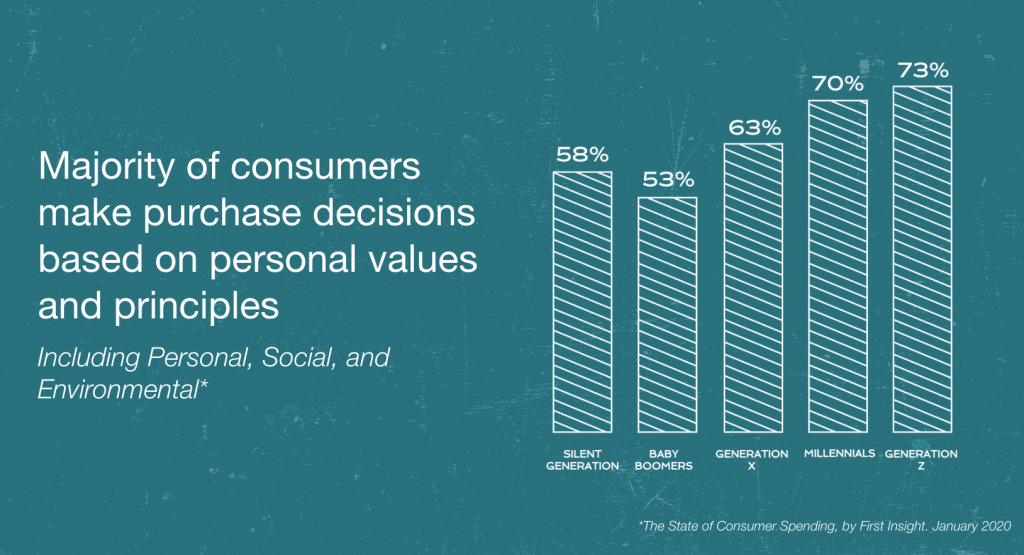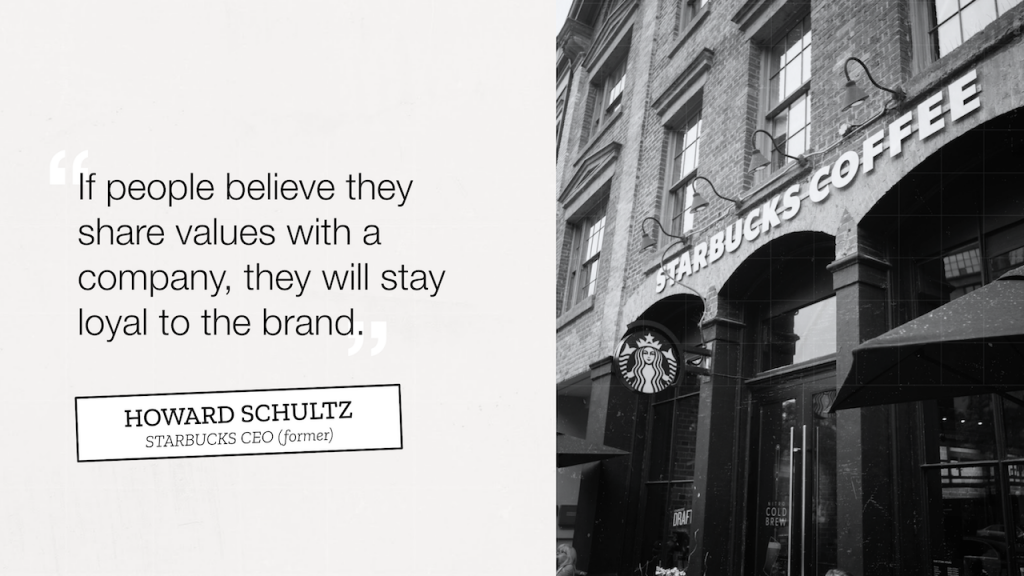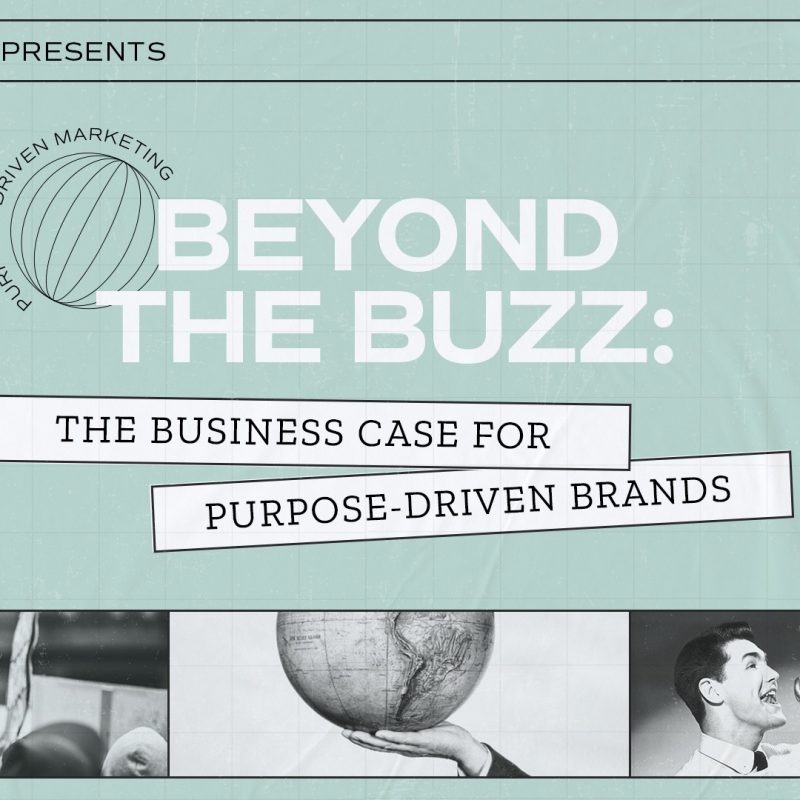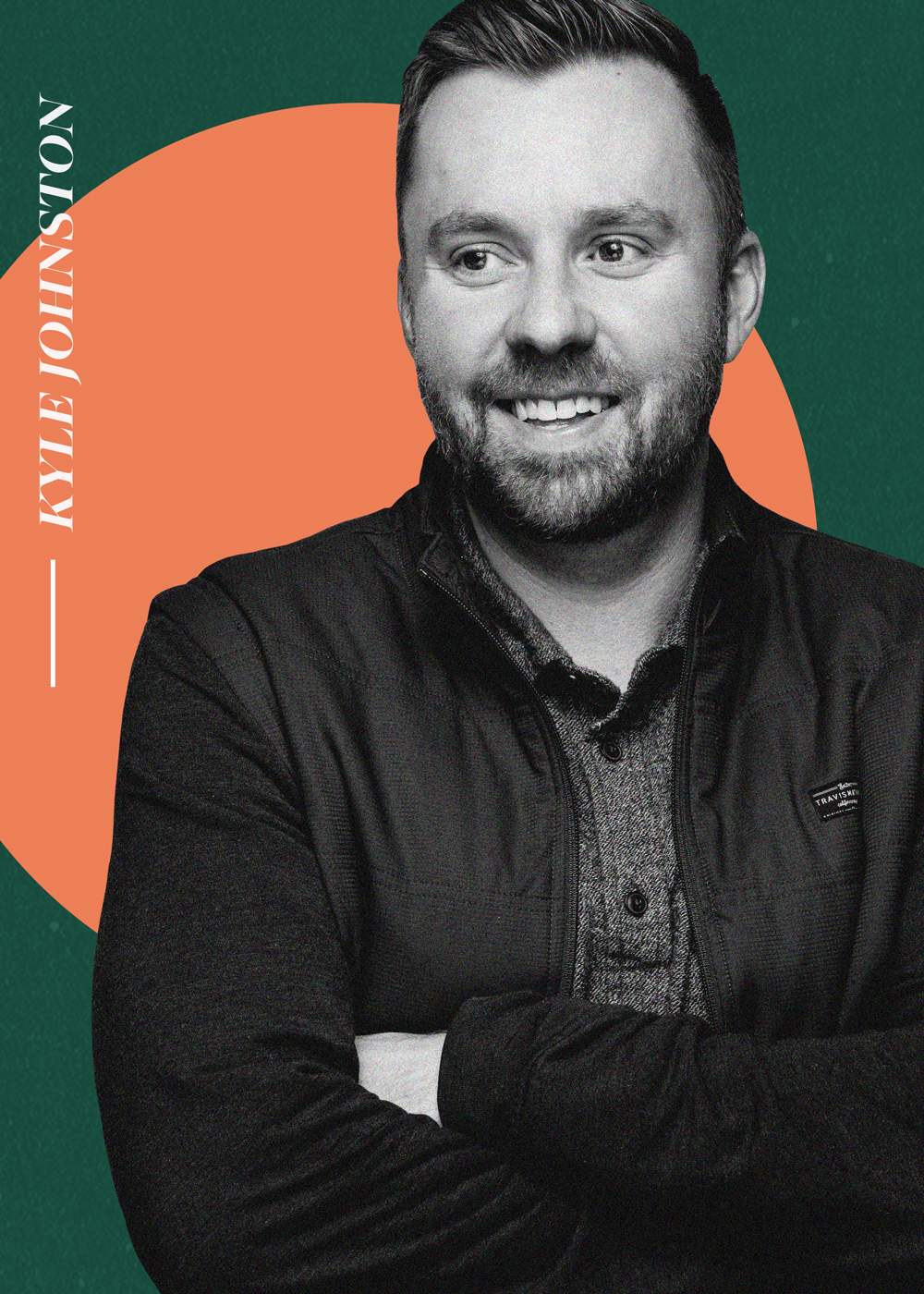The idea of purpose-driven brands and purpose-driven marketing has been a very popular topic over the last year. With so many consumers taking a close look at how they spend their money – and the brands they support – many marketers have looked to tie their brands to a set of values or a cause as a perceived “quick fix” marketing tactic. But when that purpose or cause isn’t supported by authentic action, it falls flat.

The majority of consumers make decisions based on their personal values.
So what does a successful purpose-driven strategy look like?
We held a roundtable discussion with four marketing and business leaders from three national and global brands, to explore the ways they create and support powerful purpose-driven strategies.
Here are some of the takeaways from our panel of purpose-driven marketers:
Question: Why did you choose to pursue a purpose-driven brand and marketing strategy?
Barbara Moreno, VP Marketing of Allied Universal
It started before I even took the position with Allied Universal, when I was doing my research on the industry. What we found was that there was a sea of sameness and lack of differentiation among our top competitors.
When we started doing our own research, we found that customers and employees would tend to talk about features and benefits. But when there’s no emotional connection, customers tend to make decisions based on price. That’s a problem. We don’t want to be viewed as commoditized.
We started to dig into our why: what do we and why do we do? What we uncovered – the feeling of safety – was there all along.
Safety is a basic, fundamental truth based on Maslow’s hierarchy of needs. This went perfectly with our existing tagline, “There for you,” and resonated with us as a team. We were able to build a distinct purpose around defining what “there for you” means.
As we defined our direction, it was key to have executive buy-in at every step of the process. We had ongoing conversations with our CEO as we went along. The CEO was involved every step of the way in defining our new guiding statements, and in the brand campaign that brought our purpose to life. It’s essential to involve your senior leadership and to have that alignment all the way through the process.
Question: What are some of the challenges in pursuing a purpose-driven strategy?
Helen Robinson, CEO of Organic Initiative
The noise! Greenwashing is a big issue for us. In the period products marketplace, unlike food companies or cosmetics, we are not required by law to list ingredients on our packages. So when someone sees “made with organic cotton,” no one realizes that the majority of the product is made of plastic and filled with toxins and chemicals. That communication makes it hard for companies like us who are doing it right.
Our conventional competitors have very deep pockets. So how do we help educate our customers that there is a different way?
We have gone through the difficult process of ensuring that our period products are certified organic, globally. We have to use partnerships with like-minded companies to help us get that message out. It’s certainly not easy. There’s so much misinformation everywhere.
What we’ve tried to do is use a provocative positive protest. We want to be positive and forward-thinking, while also being thought-provoking. Our packages say “Pure inside, nothing to hide.” We want the consumer to think about what that statement really means, and to ask questions about the products they are buying and using.
Question: How do you ensure that your purpose- or mission-driven strategy is playing out in an authentic way?
Daniel Lee, Head of Brand and Technology, Flame Broiler
Christian Lee, Head of Business Operations, Flame Broiler
Especially recently, being an ethical company has become a table-stakes feature for brands. For a lot of companies, being purpose-driven comes from a place of showing first, and doing second. Many companies are making it about a marketing ploy.
For us, at Flame Broiler, it’s all about the heart. We try to live our values before we talk about them. When you lead with purpose, you may have a P&L that doesn’t always make sense. For example, we buy antibiotic-free chicken and sell it for $7.40.
But when your purpose is woven into the framework of who you are and let it inform your decisions, you can be confident that you’ll live it authentically. And success, profits, growth, become a byproduct.
We use the analogy of an archer. Some archers look at the bullseye and try to hit it again and again. But instead of trying to focus on hitting the bullseye, if you focus on your form, equipment, and breathing, it becomes much easier to be successful.
Question: Describe some of the success you’ve found in pursuing a purpose-driven strategy?
Daniel Lee, Head of Brand and Technology, Flame Broiler
Christian Lee, Head of Business Operations, Flame Broiler
When the company started, our dad never wanted more than one store. But in 2020, there are hundreds of locations. We’ve gotten to where we are through word of mouth.
Our dad opened the first store to feed us and feed people good food. But customers demanded more, so he allowed franchisors to open their own store. We have no franchise salespeople, which is unusual in our world. Our growth is entirely community-driven.
Barbara Moreno, VP Marketing of Allied Universal
Our industry has very high turnover so employee loyalty is super important. We’re very focused on employee retention. Being purpose-driven makes a lot of difference from that perspective. Since we’ve began communicating that purpose, we’ve had a lot of positive feedback from our employees!
When we were able to articulate our purpose, it gave our employees and customers a definition of what they were a part of. It simplified our message. It brought authenticity and clarity for everyone in our organization. When you’re truly authentic to your purpose, people are naturally drawn in. It drives loyalty among customers and employees. It gives people a much bigger reason to believe in a company.
Helen Robinson, CEO of Organic Initiative
A single purpose guides our underlying principles. What are the actions and messages that you can use that play on those principles?
We use sales agencies and brokers to work with different retailers. This year, I spoke at a sales rep event. When I thanked them, I told them, “When you’re out there next year talking with buyers and stores and customers, remember that it’s not just about the orders and products on the shelf. It’s about the impact you’re making for the world and the health of women in the world.” The feedback I’ve had is how motivated they are because of that purpose!
Bonus Question: How did you find the right agency to pursue a purpose-driven strategy?
Barbara Moreno, VP Marketing of Allied Universal
It’s really important to find an agency partner that understands you well as a client and that can help you find ways to articulate your purpose and bring it to life.
Not every agency has the background and wherewithal to tap into those core human truths and to create that core emotional connection with a given brand. For us, we’re very appreciative of working with Gigasavvy. From the beginning, the focus was on who we are as a company and brand, our culture, and why we do things. It’s that close partnership that allowed us to really be successful together.




